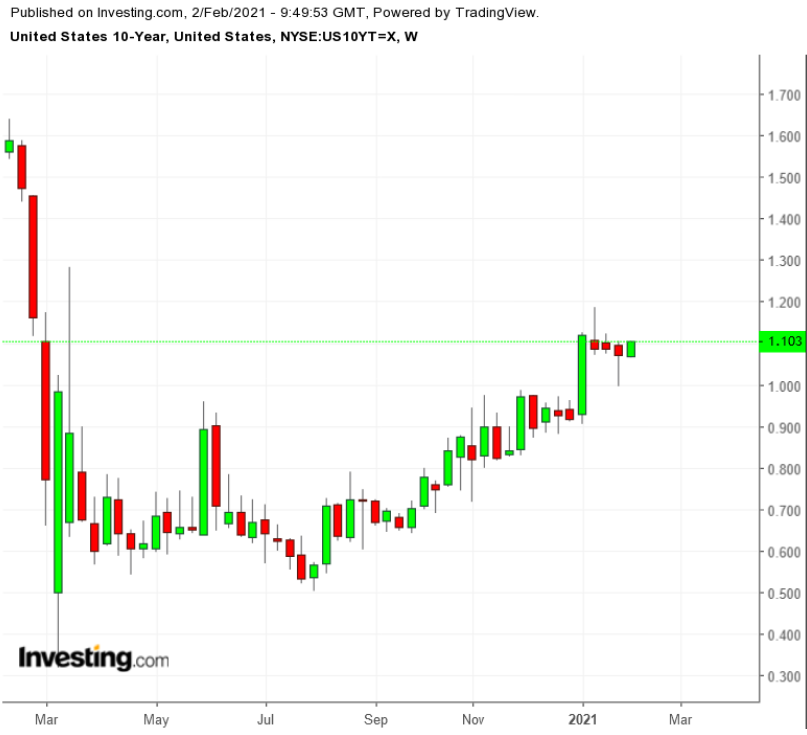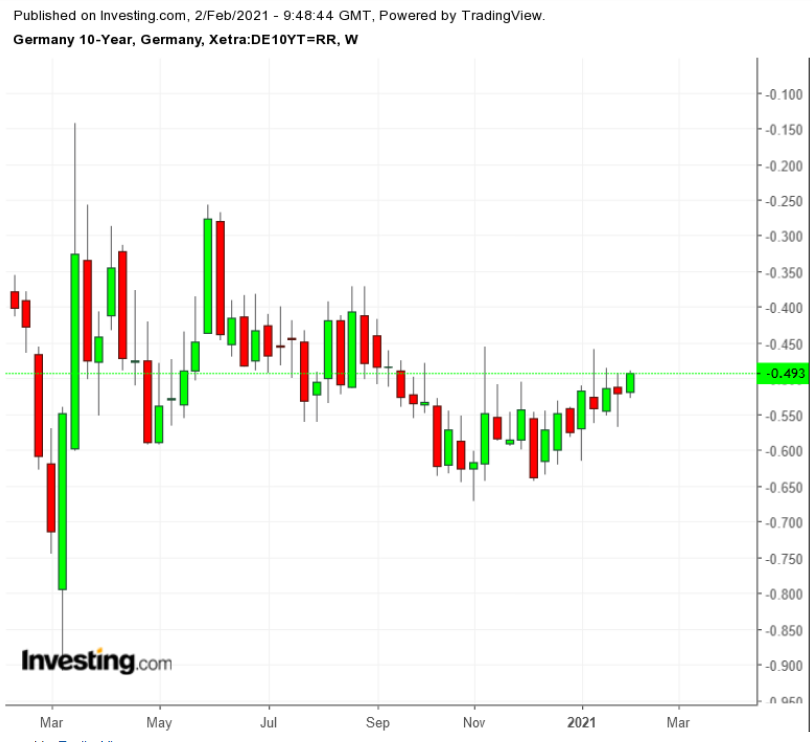Government bonds are sending mixed messages as political currents roil investors. U.S. Treasury yields have been going up and down as new COVID-19 vaccines show positive results and GDP figures meet expectations, but Republican senators pitch a relief package that is one-third the $1.9 trillion proposed by the Biden administration.

Europe meanwhile is riven by a controversy over vaccine production and distribution, displaying once again how the European Union is far from a true political union driven by solidarity. Borders have been sealed, then restored as countries try to keep out variant virus strains.
To top it off, Italy is in another political crisis, as Prime Minister Giuseppe Conte resigned after his erstwhile ally, Matteo Renzi, pulled his small party out of the governing coalition, depriving Conte of his parliamentary majority.
Conte wants to try again, hoping to find a new majority without holding a snap election, but investors were skeptical and Italian bond yields drifted upward until rumors that former European Central Bank president Mario Draghi might get the nod to head a new government rallied Italian government bonds.
Eurozone Politics, US Borrowing Estimates Fuel Sovereign Volatility
Greece improved its position with a 10-year bond issue last week that sold for the lowest yield since Athens joined the euro in 2001, at about 0.79%. Demand was so strong that the debt agency increased the amount from an initial €2.5 billion to €3 billion to end up borrowing €3.5 billion. Even at that amount, it was oversubscribed more than eight times with €29 billion in offers.
The EU’s strongest economy, Germany, is having trouble settling on a successor to Chancellor Angela Merkel, who will have been in office 16 years when she steps down this fall. Her Christian Democratic Union elected Armin Laschet, prime minister of Germany’s most populous state, North Rhine-Westphalia, as party chief, but his support is tepid and the right-leaning former parliamentary leader, Friedrich Merz, was a close runner-up.
Laschet may end up leading his party into the September election as candidate for chancellor, but Markus Söder, chairman of the autonomous Bavarian wing of the Christian Democrats, also has his eye on the prize. The Social Democrats’ candidate, Finance Minister Olaf Scholz, is under fire for the country’s biggest postwar financial scandal over the collapse of the Wirecard payments firm and last week had to fire the chief financial regulator.
At the beginning of the week, Italian bond yields declined, with the yield on the 10-year benchmark going down about 2 basis points to settle at about 0.0622%.

German 10-year bond yields rose to minus 0.511% in late trading, tightening the spread to the Italian benchmark to 113 bps.
The 10-year Treasury note yield declined to below 1.07% as President Joseph Biden agreed to meet with the moderate Republicans who want a smaller stimulus package and the closely watched ISM manufacturing index fell to 58.7 from 60.5 in December, indicating a slowdown in activity. The combination of news rallied Treasury prices, which move inversely to yields.
The Treasury Department surprised markets Monday afternoon with a borrowing estimate of only $274 billion for the first quarter, less than a quarter of the $1.127 trillion estimated in November. The government spent much less than anticipated in the fourth quarter of 2020, leaving it with $1.7 trillion in cash on hand at the end of the year.
The department warned that the borrowing estimate does not include expenditures for any stimulus decided on by Congress, so that actual borrowing may be higher. But investors are cutting back their expectations of supply of new issues, which is raising prices and pushing down yields on Treasuries.
